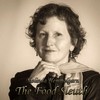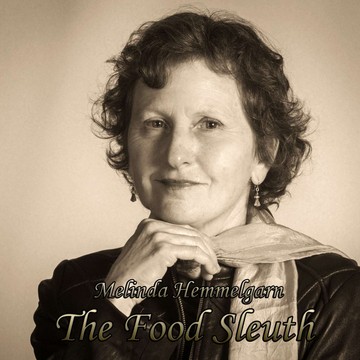

Food Sleuth Radio
Melinda Hemmelgarn
Dietitian Melinda Hemmelgarn helps listeners “think beyond their plates,” connect the dots between food, health and agriculture, and find food truth.
Episodes
Mentioned books

Mar 1, 2024 • 28min
Richard Raymond, M.D., former Undersecretary for Food Safety at the U.S. Dept. of Agriculture discusses food recalls. (Part 1 of 2)
Did you know that food recalls help prevent people from eating a food that could result in illness or injuries? Join Food Sleuth Radio host and Registered Dietitian, Melinda Hemmelgarn, for her interview with Richard Raymond, M.D., former Undersecretary for Food Safety at the U.S. Dept. of Agriculture. Raymond discusses food recalls: reasons why food is recalled, the possible fates of recalled food, and specific cases related to the bacteria, E. coli 0157:H7. (Part 1 of 2) Related website: Food Recalls:https://foodprint.org/blog/the-oft-ignored-environmental-impact-of-food-recalls-food-waste/FSIS: https://www.fsis.usda.gov/recallsFood Safety News:https://www.foodsafetynews.com/

Feb 23, 2024 • 28min
Kirsten Stolle, visual artist who examines the global influence of agrichemical companies on our food system
Did you know that artists can play a unique role in helping us think critically about the global influence of agrichemical companies on our food system? Join Food Sleuth Radio host and Registered Dietitian, Melinda Hemmelgarn, for her interview with Kirsten Stolle, a visual artist whose works intersect art, science and culture to examine the global influence of agrichemical companies on our food system. Stolle describes her artwork, and explains how she helps viewers see propaganda, corporate greenwashing and advertising strategies, while promoting critical thinking and visual literacy. Her unique collages reflect her concern with industrial food production and the influence of biotechnology. She delves into the historical ties between Monsanto, Bayer, and Dow and chemical warfare. Her work is included in permanent collections and exhibits in museums and galleries across the U.S. and the EU. Related website: Chemical Bouquet: https://www.kirstenstolle.com/chemical-bouquethttps://www.thebillboardcreative.com/interviews/kirsten-stolle

Feb 15, 2024 • 28min
Matt Lebon discusses the multiple benefits of “foodscaping.”
Did you know that “foodscaping” involves the planning, design, management, and nurturing of ecological edible landscapes? Join Food Sleuth Radio host and Registered Dietitian, Melinda Hemmelgarn, for her interview with Matt Lebon, owner of Custom Foodscaping. Lebon, who provides education and leadership to foodscapers nationally, discusses the multiple benefits of creating beautiful, edible landscapes, how to deal with challenges and reap abundant rewards. Related website: https://www.customfoodscaping.com/https://www.thefoodscaper.com/

Feb 8, 2024 • 28min
Jess Conard, Beyond Plastics, discusses the anniversary of the toxic Norfolk Southern train derailment in East Palestine, OH.
Did you know that one year ago the community of East Palestine Ohio was poisoned by a Norfolk Southern train derailment and the resulting purposeful burning of vinyl chloride? Join Food Sleuth Radio host and Registered Dietitian, Melinda Hemmelgarn, for her interview with Jess Conard, Appalachia Director at Beyond Plastics who discusses the ongoing public health consequences facing her community. Conard explains that any community in close proximity to rail lines is at risk for a similar fate, and encourages citizen action to encourage the EPA to ban vinyl chloride.https://www.beyondplastics.org/actions/ban-vinyl-chloride Related website: https://www.beyondplastics.org/actions/ban-vinyl-chlorideGrist: One Year After the Toxic Train Derailment…https://grist.org/accountability/is-east-palestine-safe-depends-who-you-ask/

Feb 2, 2024 • 28min
Mary Donkersloot, Registered Dietitian and host of the Smart Eating Show, discusses pros and cons of new obesity drugs.
Did you know that the drugs Ozempic and Wegovy are revolutionizing the medical treatment of obesity and related disorders? Join Food Sleuth Radio host and Registered Dietitian, Melinda Hemmelgarn, for her interview with Mary Donkersloot, RDN, Registered Dietitian Nutritionist and host of the Smart Eating Show. The two will discuss the pros and cons of this new class of obesity drugs and drug-free ways to tweak our diets to increase satiety and reach a healthier body weight. Related website: https://www.youtube.com/@smarteatingshow7793 Impact on food industry: https://foodinstitute.com/focus/ozempics-business-impact-weight-loss-drug-could-make-snack-makers-tighten-belts/

Jan 26, 2024 • 28min
Byron Kominek, founder of Jack’s Solar Garden and Executive Director of the Colorado Agrivoltaic Learning Center.
Did you know that there are multiple benefits resulting from the co-location of solar panels with agricultural production? Join Food Sleuth Radio host and Registered Dietitian, Melinda Hemmelgarn, for her interview with Byron Kominek, founder of Jack’s Solar Garden and Executive Director of the Colorado Agrivoltaic Learning Center in Longmont, CO - the largest commercially active agrivoltaics system in the United States. Kominek describes how solar panels can benefit farmworkers and livestock and influence plant growth, while generating climate-friendly energy. Related website: https://www.coagrivoltaic.org/

Jan 19, 2024 • 28min
Elizabeth Hilborn, DVM, registered nurse, farmer and author of Restoring Eden: Unearthing the Agribusiness Secret that Poisoned my Farming Community.
Did you know that the majority of corn seeds planted in the United States are coated with a powerful pesticide that harms pollinators, birds and other wildlife? Join Food Sleuth Radio host and Registered Dietitian, Melinda Hemmelgarn, for her interview with Elizabeth Hilborn, DVM, registered nurse, farmer and author of Restoring Eden: Unearthing the Agribusiness Secret that Poisoned my Farming Community (Chicago Review Press, 2023). Hilborn recounts her tragic story about how neonicotinoid seed coatings washed onto her farm, and the resulting devastating impact on wildlife and garden crops. Hilborn connects the dots – agricultural practices/pesticides, lack of government oversight, and public and environmental health. Related website: https://elizabethhilborn.com/

Jan 12, 2024 • 28min
Michelle Gray, Ph.D, Professor of Exercise Science discusses sarcopenia and health benefits of exercise
Did you know that exercise benefits both physical health and cognition? Join Food Sleuth Radio host and Registered Dietitian, Melinda Hemmelgarn, for her interview with Michelle Gray, Ph.D., Head of the Department of Health, Human Performance and Recreation, Director of the Office for Studies on Aging, and Professor of Exercise Science at the University of Arkansas-Fayetteville. Gray discusses age-related muscle loss and the functional and cognitive benefits of exercise, along with adequate protein intake. Related website: https://exercisescience.uark.edu/

Jan 5, 2024 • 28min
Sara John, Ph.D., Deputy Director, Center for Science in the Public Interest, reports on Dollar stores
Did you know that Dollar Stores are the fastest growing food retailer in the U.S.? Join Food Sleuth Radio host and Registered Dietitian, Melinda Hemmelgarn, for her interview with Sara John, Ph.D., Deputy Director at the Center for Science in the Public Interest, and lead author of “Stretching the Dollar: Community Informed Opportunities to Improve Healthy Food Access through Dollar Stores.” John discusses the steady growth of Dollar Stores, their potential impact on community health, and policy interventions to limit their expansion and incentivize improvements in the nutritional value of food sold at the stores. Related website: https://www.cspinet.org/resource/stretching-dollar Take action: https://www.cspinet.org/article/dollar-general-dont-discount-families

Dec 28, 2023 • 28min
Anna Jones-Crabtree, Ph.D., owner and operator of Vilicus Farms and Institute.
Did you know that farm couples often have to find off-farm jobs to secure health insurance? Join Food Sleuth Radio host and Registered Dietitian, Melinda Hemmelgarn, for her interview with Anna Jones-Crabtree, Ph.D., owner and operator of Vilicus Farms and Institute, in Havre, MT. Jones-Crabtree discusses agricultural challenges and opportunities for farming in light of climate change, policy, and relationships with community and nature. She explains “systems thinking,” and encourages us to recognize how ecology is central to economic and social systems. Related website: https://vilicusfarms.com/ https://www.vilicusinstitute.org/


